Water serves as one of the most essential elements for human survival and optimal health. While most people understand the basic need for hydration, many overlook the specific advantages that come from consuming high-quality water sources.
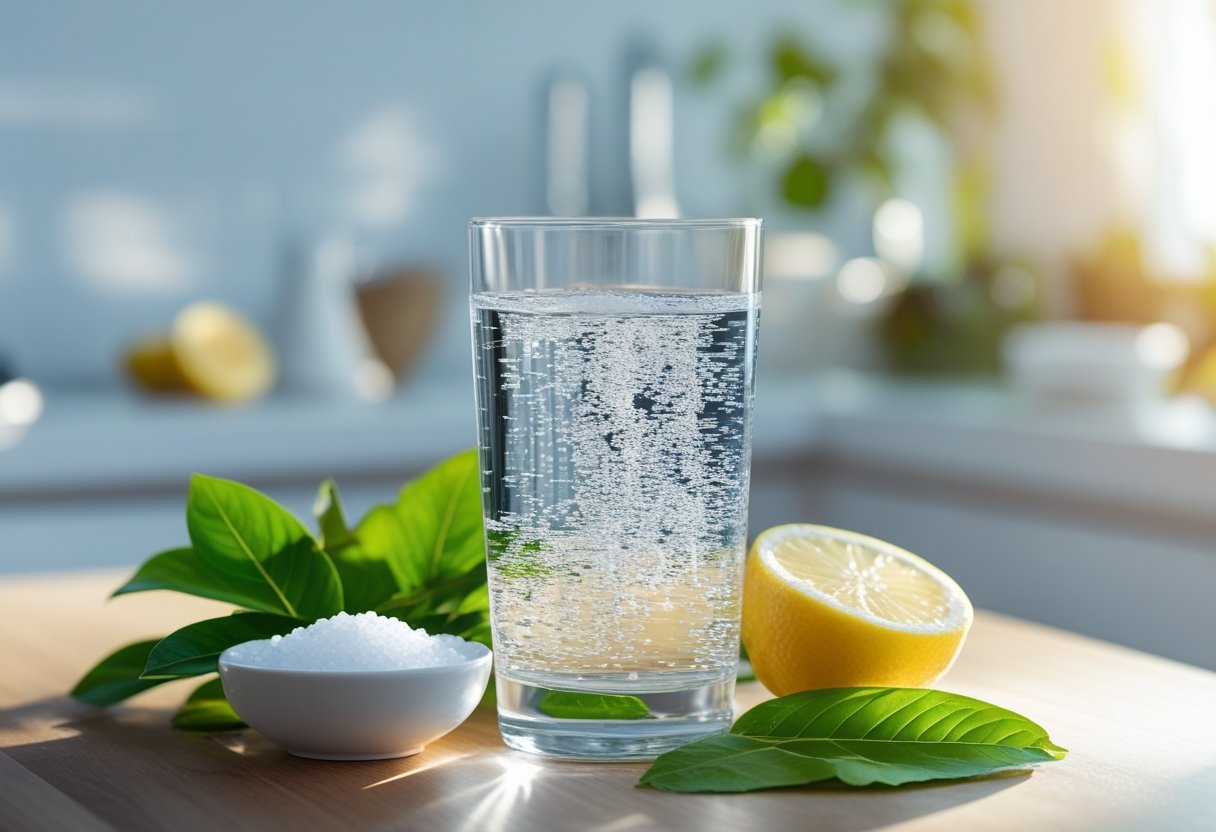
Fine water offers unique benefits that go beyond basic hydration, supporting everything from temperature regulation and joint health to cognitive function and weight management. This comprehensive guide explores ten key advantages of drinking fine water, examining how it differs from regular water and why quality matters for overall wellness. Understanding these benefits can help individuals make informed decisions about their daily hydration choices and long-term health goals.
1. Improves hydration and supports overall bodily functions
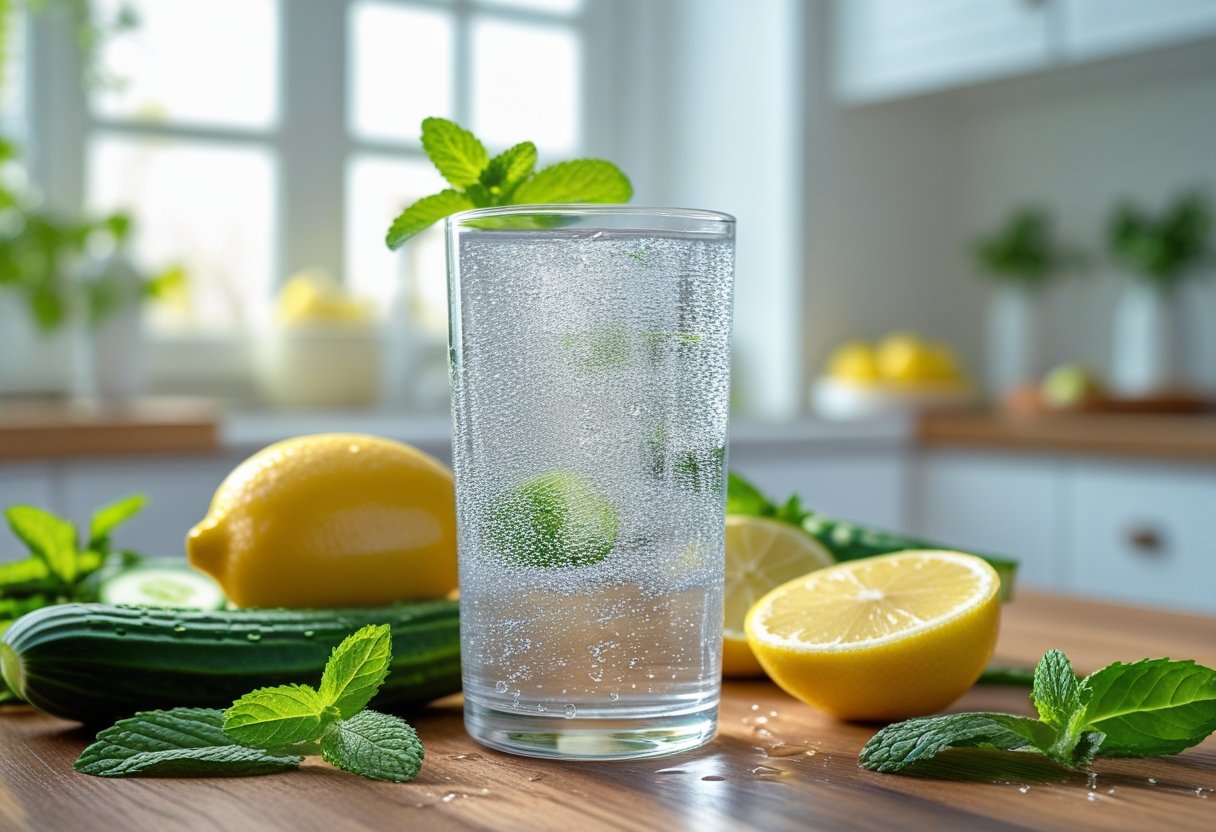
Water makes up about 60% of the human body weight. It plays a critical role in nearly every bodily function that keeps people alive and healthy.
Proper hydration helps the body regulate temperature effectively. This process becomes especially important during physical activity or hot weather conditions.
Water transports nutrients to cells throughout the body. It also helps remove waste products that could harm organs if they build up.
Adequate hydration plays a key role in maintaining bodily health by supporting basic body processes. These include breathing, digestion, and blood circulation.
The body uses water to maintain proper blood volume. This helps the heart pump blood more easily to all parts of the body.
Water also helps maintain the balance of important minerals in cells. These minerals allow muscles and nerves to work properly.
When people drink enough water daily, their bodies can perform all these functions smoothly. Without adequate hydration, bodies struggle to perform optimally and may experience fatigue or other health issues.
2. Regulates body temperature effectively

Water plays a key role in keeping the body at the right temperature. When someone drinks enough water, their body can better control heat through natural cooling processes.
The body uses water to produce sweat when temperatures rise. Water helps regulate body temperature through sweating and respiration, preventing overheating during physical activity or in hot climates.
During exercise, proper hydration becomes even more important. When you drink water, it regulates your body temperature, especially during exercise.
Fine water supports the body’s natural cooling system. It allows blood to flow smoothly and carry heat away from vital organs to the skin surface where it can escape.
Without enough water, the body struggles to maintain normal temperature. This can lead to overheating and reduced physical performance.
Hydration is essential to stay active and perform well, whether during workouts or daily activities. The body depends on water to function properly in different temperatures.
Fine water provides the pure hydration needed for effective temperature control. It helps maintain the delicate balance that keeps internal temperature stable regardless of outside conditions.
3. Enhances digestion and nutrient absorption
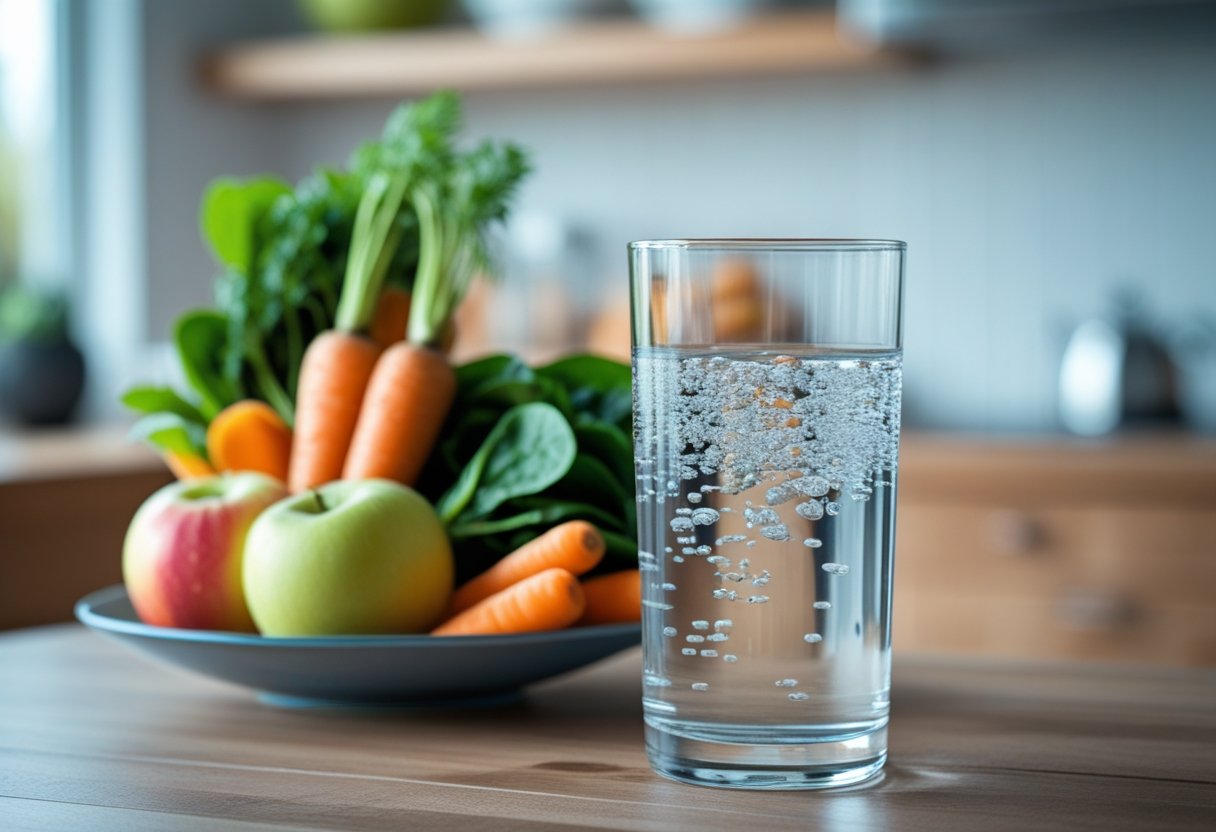
Fine water plays a key role in breaking down food in the digestive system. Water helps break down food particles and makes it easier for the body to process nutrients.
The digestive tract needs water to work properly. Every cell, tissue, and organ requires water to function correctly for digestion and absorption.
Water helps the stomach break down food into smaller pieces. This makes nutrients more available for the body to absorb through the intestinal walls.
Water facilitates nutrient absorption by helping transport vitamins and minerals through the digestive system. Without enough water, the body struggles to get nutrients from food.
Proper hydration keeps the digestive system moving smoothly. Water helps maintain a healthy digestive system and prevents problems like constipation.
The body uses water to create digestive juices and enzymes. These substances are essential for breaking down proteins, fats, and carbohydrates from meals.
Fine water supports the entire digestive process from start to finish. It helps food move through the system while extracting maximum nutritional value.
4. Prevents urinary tract infections and kidney stones
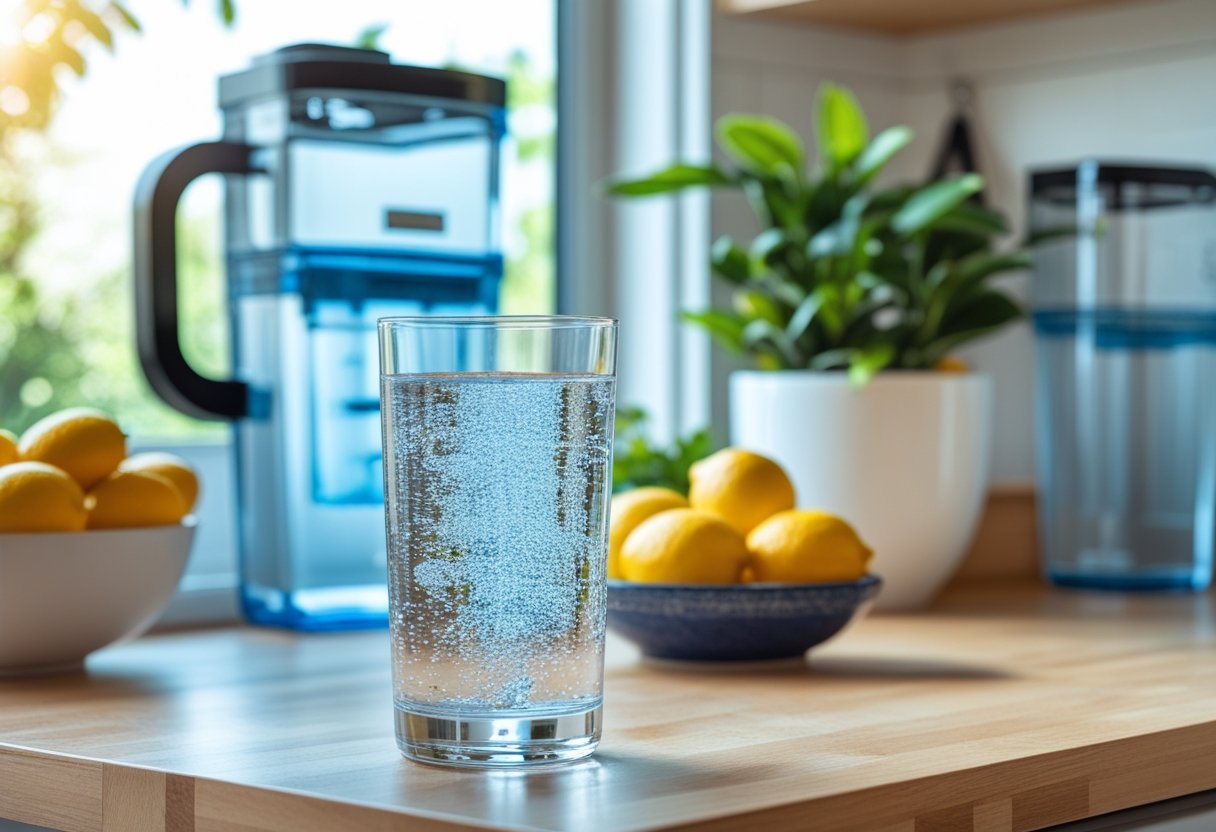
Water serves as the best choice for kidney health. The kidneys use water to filter waste and keep the body working properly.
Proper hydration dilutes minerals and waste products in urine. This process reduces the concentration of substances that can form kidney stones.
Drinking enough water helps prevent kidney stones and urinary tract infections. Both conditions can worsen existing kidney problems if left untreated.
Staying hydrated supports kidney function and prevents infections in the urinary tract. Water flushes bacteria and toxins from the system before they can cause problems.
Regular water intake keeps urine flowing steadily through the urinary system. This constant movement prevents bacteria from settling and multiplying in the bladder or urinary tract.
People who drink adequate amounts of water experience fewer urinary tract infections. The fluid helps wash away harmful bacteria before infections can develop and spread throughout the urinary system.
5. Boosts skin health and reduces dryness

Water plays a key role in keeping skin healthy and moisturized from the inside out. When people drink enough water, it helps maintain skin elasticity and reduces dryness.
Proper hydration supports the skin’s natural moisture levels. This prevents the dry, flaky patches that occur when skin cells lack adequate water.
Drinking enough water helps hydrate the skin, which reduces redness and dryness. It also increases blood flow to the skin, creating a more even skin tone.
Well-hydrated skin appears more supple and smooth. Adequate water intake promotes even moisture distribution throughout the skin layers.
Water helps maintain the skin’s protective barrier function. This barrier keeps moisture in and harmful substances out, preventing irritation and dryness.
Regular water intake supports the skin’s natural renewal process. This helps dead skin cells shed properly, revealing fresher, healthier skin underneath.
6. Supports muscle function and reduces cramps

Water plays a vital role in keeping muscles working properly. Muscles rely on water to function efficiently, and even small drops in hydration can affect performance.
Dehydration makes muscles more likely to cramp. When the body lacks enough water, muscle contractions become less smooth and coordinated.
Proper hydration helps prevent muscle cramps and fatigue. Water helps muscles get the nutrients and oxygen they need to work well.
Drinking water before, during, and after exercise maintains electrolyte balance. This balance is key for normal muscle function.
Water also helps remove waste products that build up in muscles during activity. Not drinking enough water can slow down the removal of these waste products, which may lead to cramping.
Fine water supports smooth muscle contractions and reduces injury risk during physical activity.
7. Lubricates and cushions joints
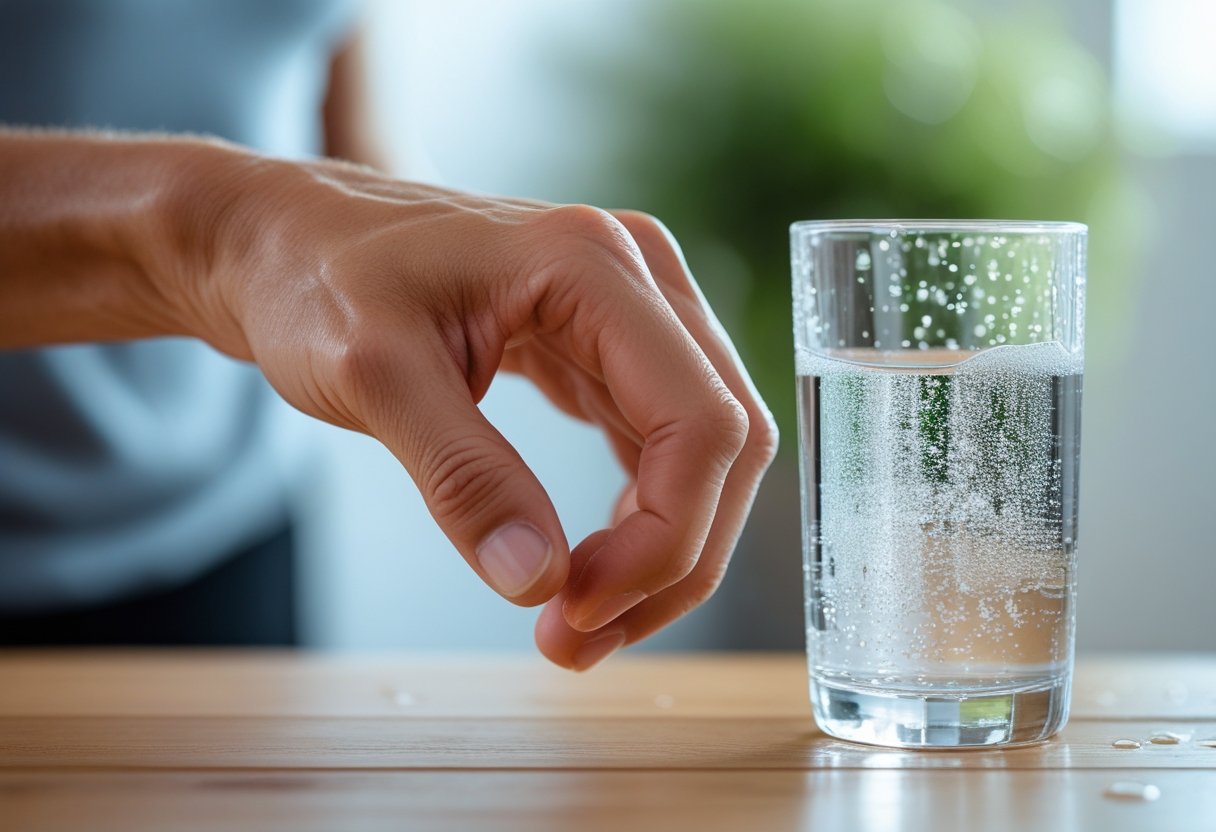
Water plays a vital role in keeping joints healthy and moving smoothly. The body uses water to make synovial fluid, which acts as a natural lubricant between bones.
Synovial fluid is mostly composed of water and helps reduce friction during movement. This thick, gel-like substance cushions joints and allows them to move freely without grinding against each other.
Cartilage in joints and spinal disks contains 80 percent water. When someone drinks enough water, they help maintain this important tissue that protects bones from wear and tear.
Without adequate water intake, synovial fluid production can be compromised. This leads to increased friction between bones during movement.
Dehydration can lead to joint pain and stiffness because it reduces the amount of protective fluid in joints. People who stay properly hydrated often experience smoother joint movement and less discomfort.
Regular water consumption provides a fresh supply that acts as a lubricant in synovial fluid, helping joints stay flexible and pain-free.
8. Aids in maintaining healthy blood pressure levels
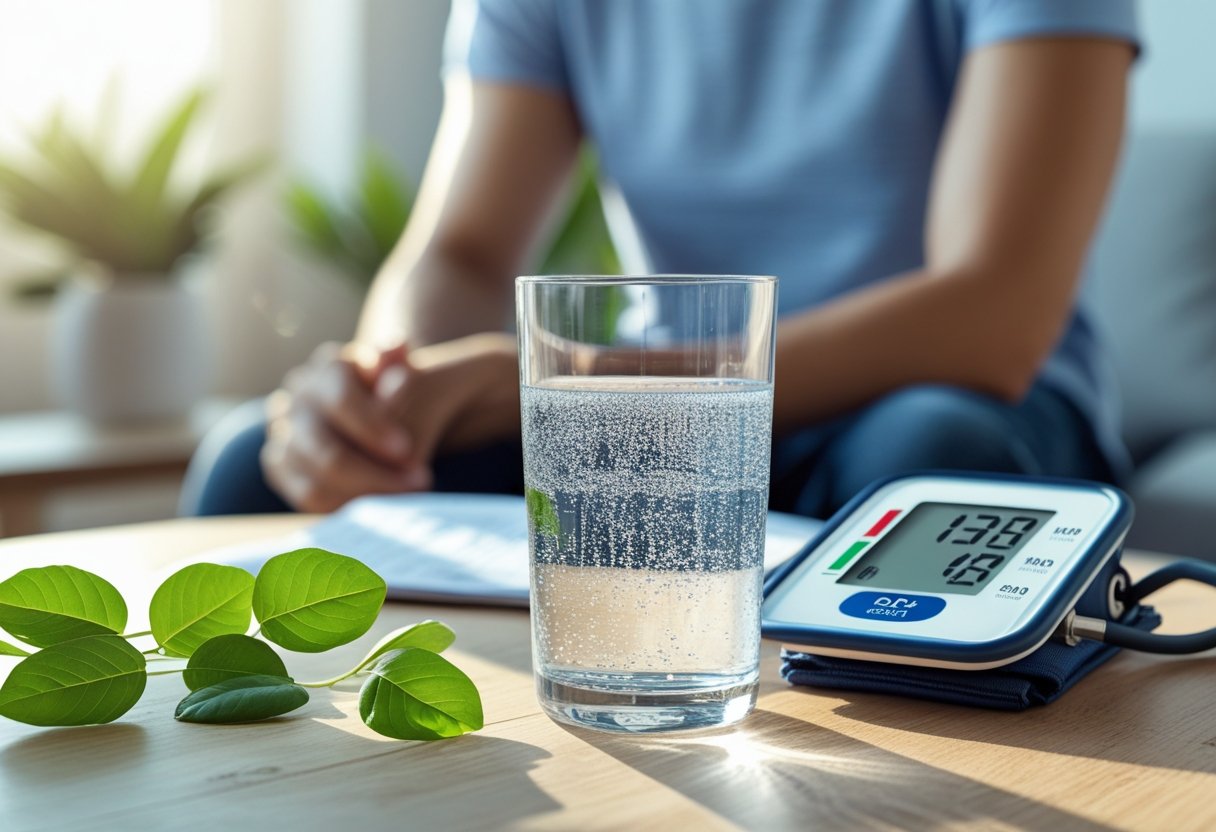
Fine water plays an important role in keeping blood pressure at healthy levels. When the body has enough water, it helps the heart and blood vessels work properly.
Dehydration can cause problems with blood pressure. When someone doesn’t drink enough water, their blood becomes thicker. This makes the heart work harder to pump blood through the body.
Proper hydration helps maintain healthy blood pressure levels and supports the heart. The kidneys also need water to control blood pressure correctly.
People who stay well-hydrated give their body the best chance to manage blood pressure naturally. Fine water provides clean hydration without extra chemicals or additives.
Drinking water daily benefits blood pressure by promoting hydration and supporting heart health. This happens because water helps blood flow more easily through blood vessels.
While water alone won’t cure high blood pressure, it’s an important part of staying healthy. Maintaining adequate hydration is essential for cardiovascular health and can help support normal blood pressure function.
9. Helps in weight management by reducing calorie intake
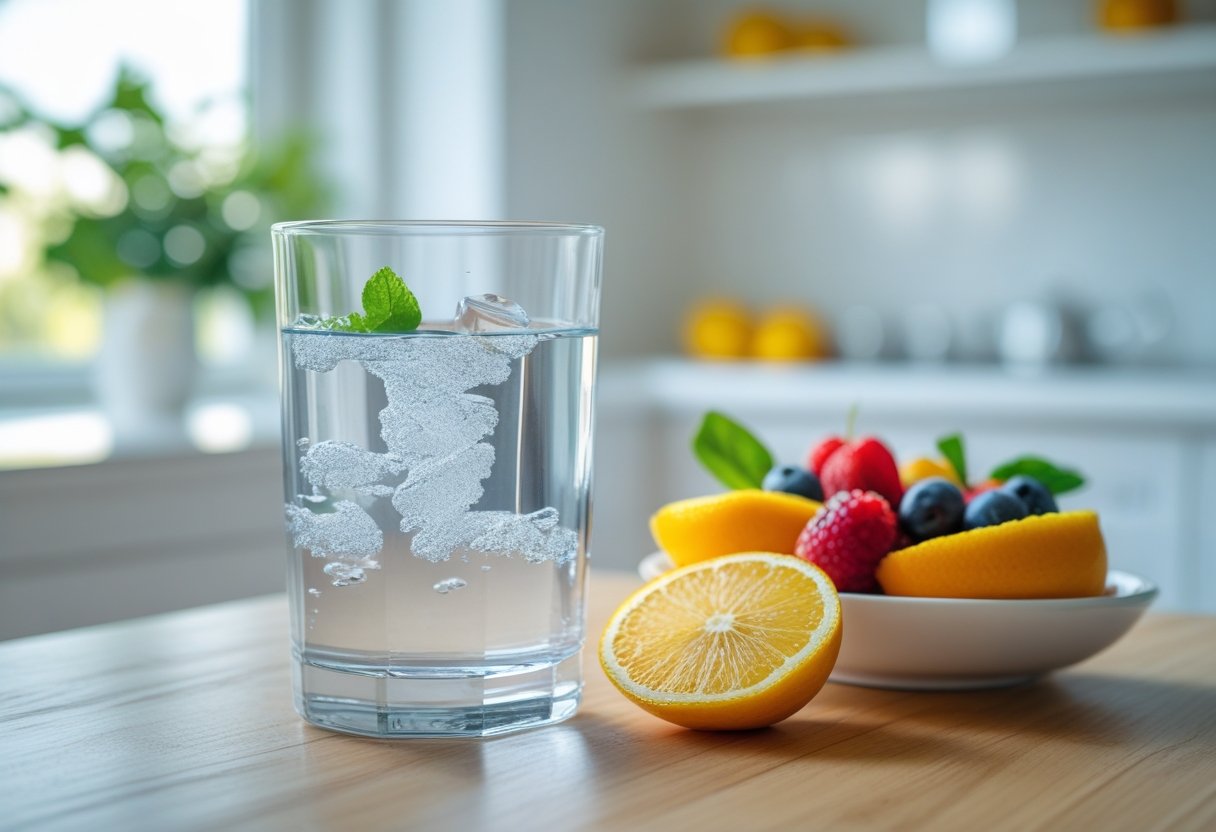
Fine water serves as a zero-calorie replacement for high-calorie beverages. Drinking water helps avoid sugary drinks like sodas and juices, which reduces overall calorie consumption.
Swapping soda or sugary drinks for water can reduce calorie intake without causing feelings of deprivation. This simple change eliminates hundreds of empty calories from daily intake.
Water promotes fullness before meals. Research shows that consuming water before meals can reduce calorie intake by increasing feelings of satisfaction.
Drinking 500ml of water can increase metabolism by 30% for about an hour. This temporary boost helps burn extra calories throughout the day.
Fine water also helps control appetite between meals. When the body stays properly hydrated, it can better distinguish between hunger and thirst signals, preventing unnecessary snacking.
10. Improves cognitive function and mood stability
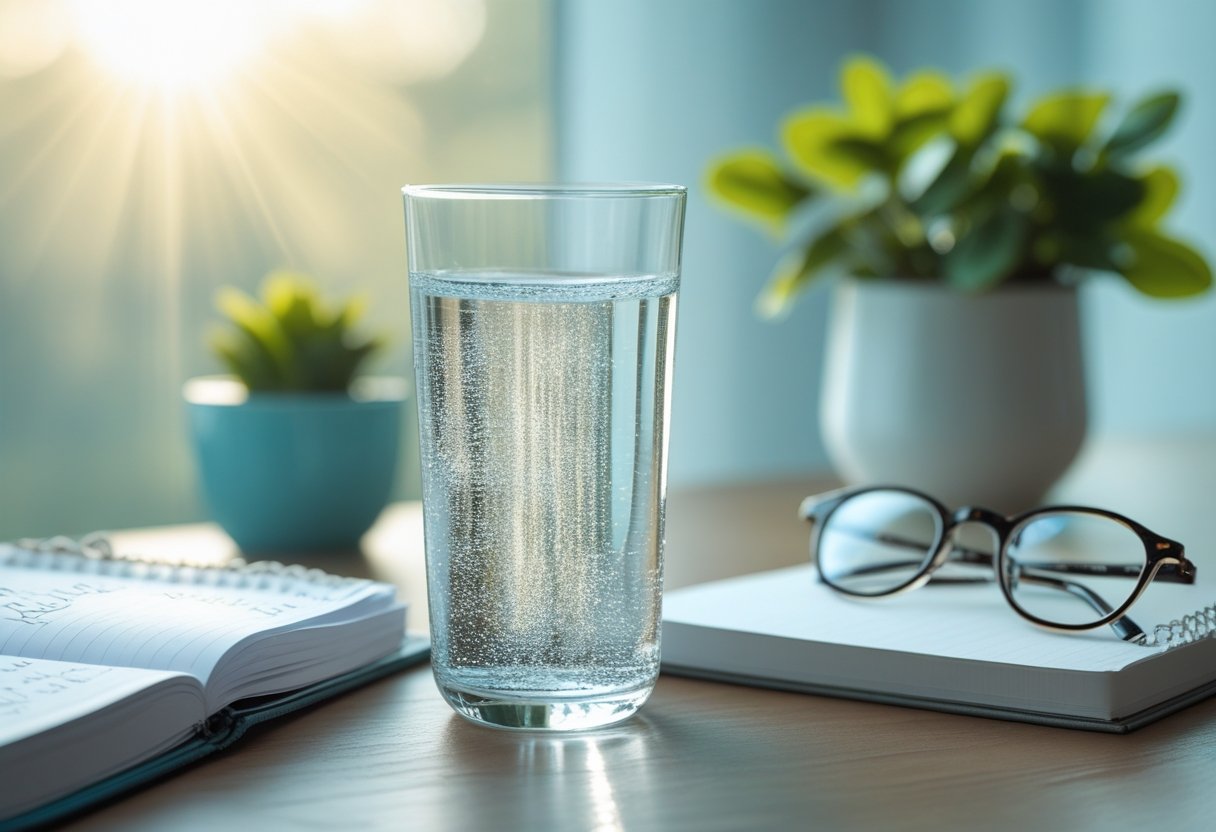
Water plays a vital role in brain function. The brain needs adequate hydration to work at its best.
Dehydration can impair cognitive abilities and memory. Even mild dehydration affects mental clarity and concentration.
Proper hydration enhances cognitive function and supports mental sharpness. People who drink enough water often experience better focus and attention.
Water intake also affects mood regulation. Staying hydrated can reduce stress and anxiety, promoting a calmer state of mind.
Research shows that adequate hydration aids in mood stability. It may reduce irritability and enhance emotional balance.
Studies indicate that water consumption can have beneficial effects on happiness ratings. Children who drank water showed improved mood in some research.
When the body lacks water, people may experience mood swings and difficulty thinking clearly. Drinking fine water helps maintain the brain’s optimal function and emotional stability throughout the day.
Understanding Fine Water
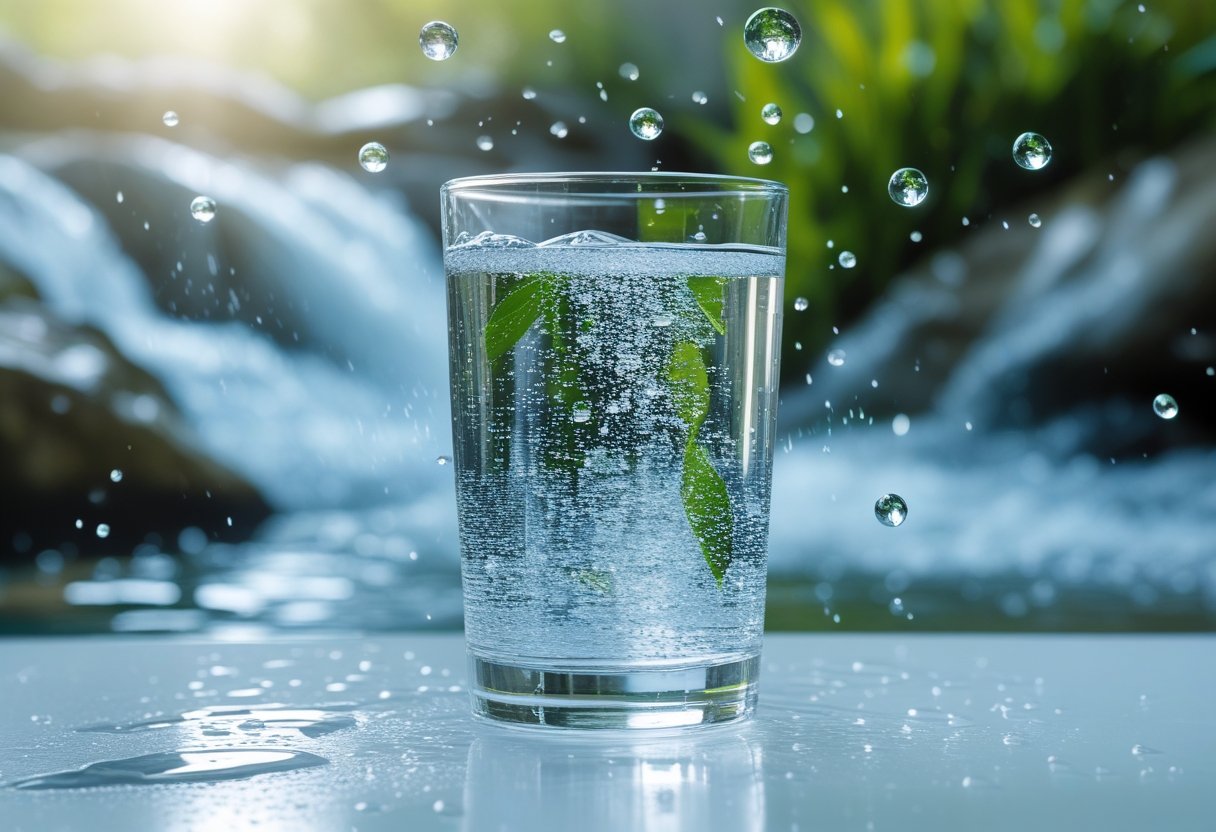
Fine water represents a premium category of bottled water with specific quality standards and natural sourcing requirements. These waters undergo minimal processing to preserve their natural mineral content and taste profiles.
What Defines Fine Water
Fine water comes from protected natural sources like springs, wells, or aquifers. The water must have consistent mineral composition and taste characteristics that remain stable over time.
Key characteristics include:
- Natural origin from underground sources
- Low sodium content (typically under 20mg per liter)
- Balanced mineral profile
- Neutral to slightly alkaline pH levels
- No artificial additives or treatments
The mineral content varies by source location. Some fine waters contain high levels of calcium and magnesium, while others feature unique minerals like lithium or silica.
Fine water differs from regular bottled water through its natural sourcing and wellness properties. The taste profile reflects the geological environment where the water originates.
Sourcing and Bottling Standards
Fine water producers must follow strict guidelines for extraction and bottling. The source location requires environmental protection to prevent contamination.
Sourcing requirements:
- Protected watershed areas
- Regular water quality testing
- Sustainable extraction rates
- Minimal environmental impact
Bottling occurs at or near the source to maintain water quality. The process uses sterile equipment and sealed systems to prevent contamination.
Quality control includes testing for bacteria, heavy metals, and chemical pollutants. Each batch receives certification before distribution to ensure consistency and safety standards.
The bottling facilities maintain temperature control and use UV-resistant containers to preserve the water’s natural properties during storage and transport.
Comparing Fine Water to Regular Water
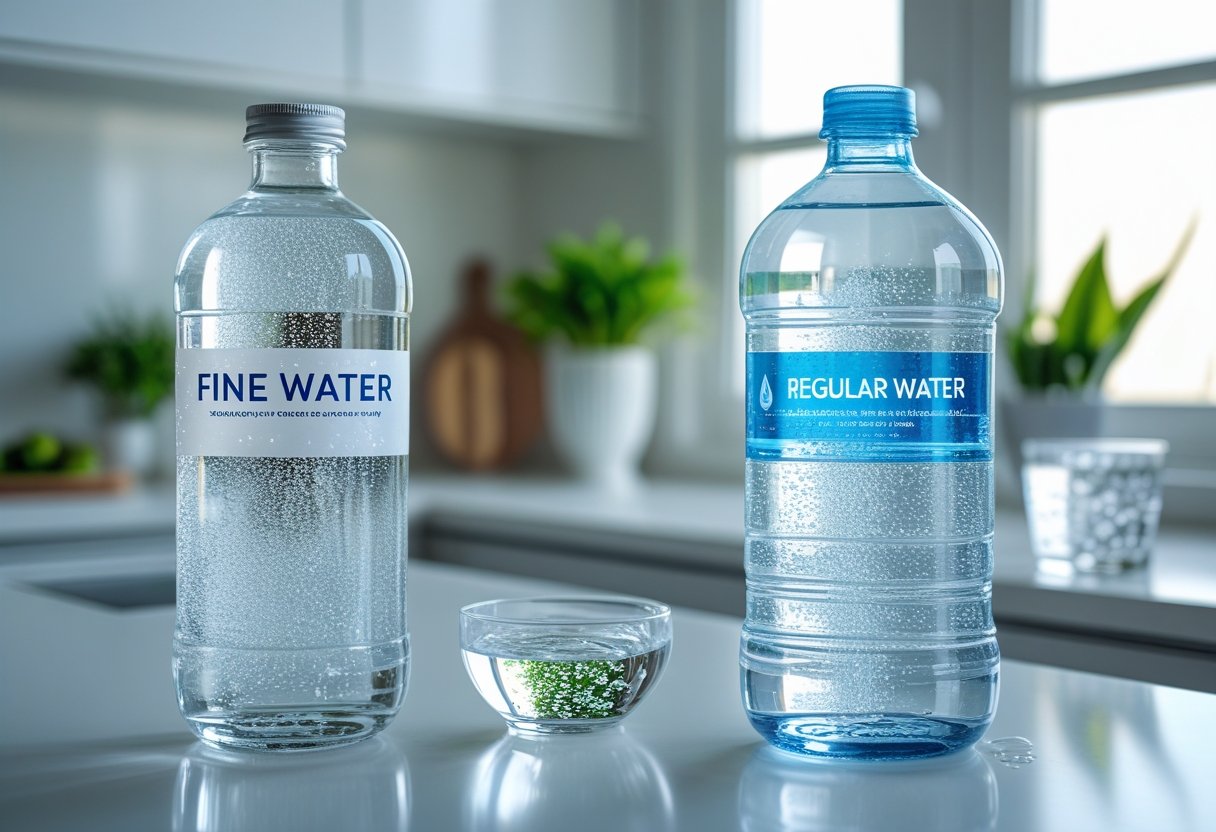
Fine water differs from regular tap water in its mineral composition and processing methods. The taste profile and purity levels create distinct drinking experiences between these two water types.
Purity and Mineral Content
Fine water undergoes specialized filtration processes that remove impurities while preserving beneficial minerals. Most fine waters contain naturally occurring minerals like calcium, magnesium, and potassium in balanced amounts.
Regular tap water quality varies by location and treatment facility. Municipal water systems use chlorine and fluoride for safety, which can affect taste and mineral content.
Key Mineral Differences:
- Fine water: 50-500 mg/L total dissolved solids
- Tap water: 150-1000 mg/L total dissolved solids
- Fine water maintains consistent mineral ratios
- Tap water mineral content fluctuates seasonally
Fine water sources often come from protected springs or aquifers. These natural sources provide stable mineral profiles without artificial additives.
The purification methods for different water types affect final quality. Fine water uses minimal processing to maintain natural characteristics.
Taste and Sensory Experience
Fine water delivers a cleaner, more neutral taste compared to regular tap water. The absence of chlorine and reduced mineral variations create a smoother drinking experience.
Tap water often has metallic or chemical notes from treatment processes. Geographic location affects taste through local mineral deposits and processing methods.
Taste Factors:
- pH levels: Fine water typically ranges 6.5-8.5
- Mineral balance: Creates subtle flavor notes
- Temperature stability: Consistent taste profile
- Absence of additives: No chlorine or fluoride taste
Fine water provides consistent sensory qualities regardless of location. Each bottle maintains the same mineral profile and taste characteristics.
The mouthfeel differs between water types due to mineral content. Fine water often feels lighter and more refreshing than heavily treated municipal water.
Frequently Asked Questions
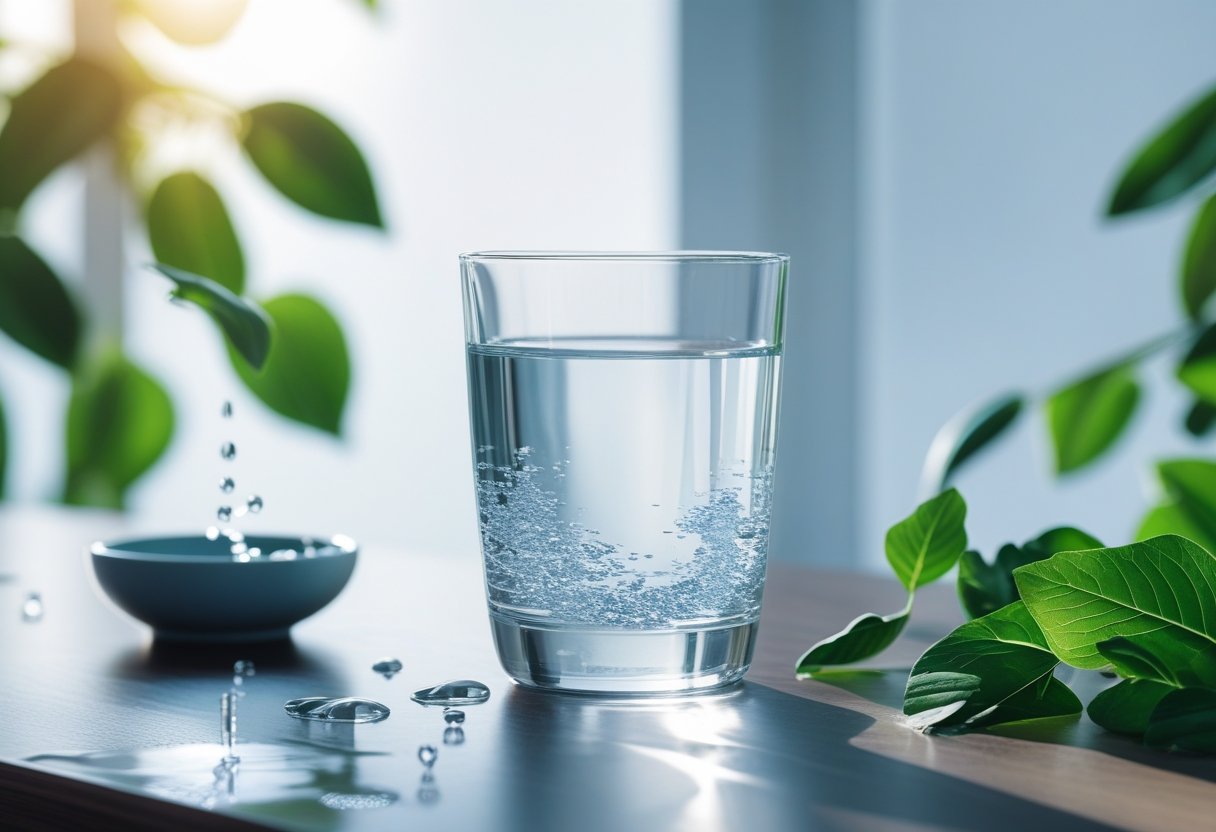
People often ask about specific ways water benefits their health and how much they should drink daily. These common questions address hydration’s impact on skin, weight, kidneys, energy, and physical performance.
What are the top benefits of staying adequately hydrated?
Proper hydration supports overall bodily functions and maintains normal body temperature. Water helps the body lubricate joints and prevents dehydration symptoms like unclear thinking and mood changes.
The body uses water to transport nutrients and remove waste products. Adequate hydration prevents constipation and supports smooth digestion throughout the day.